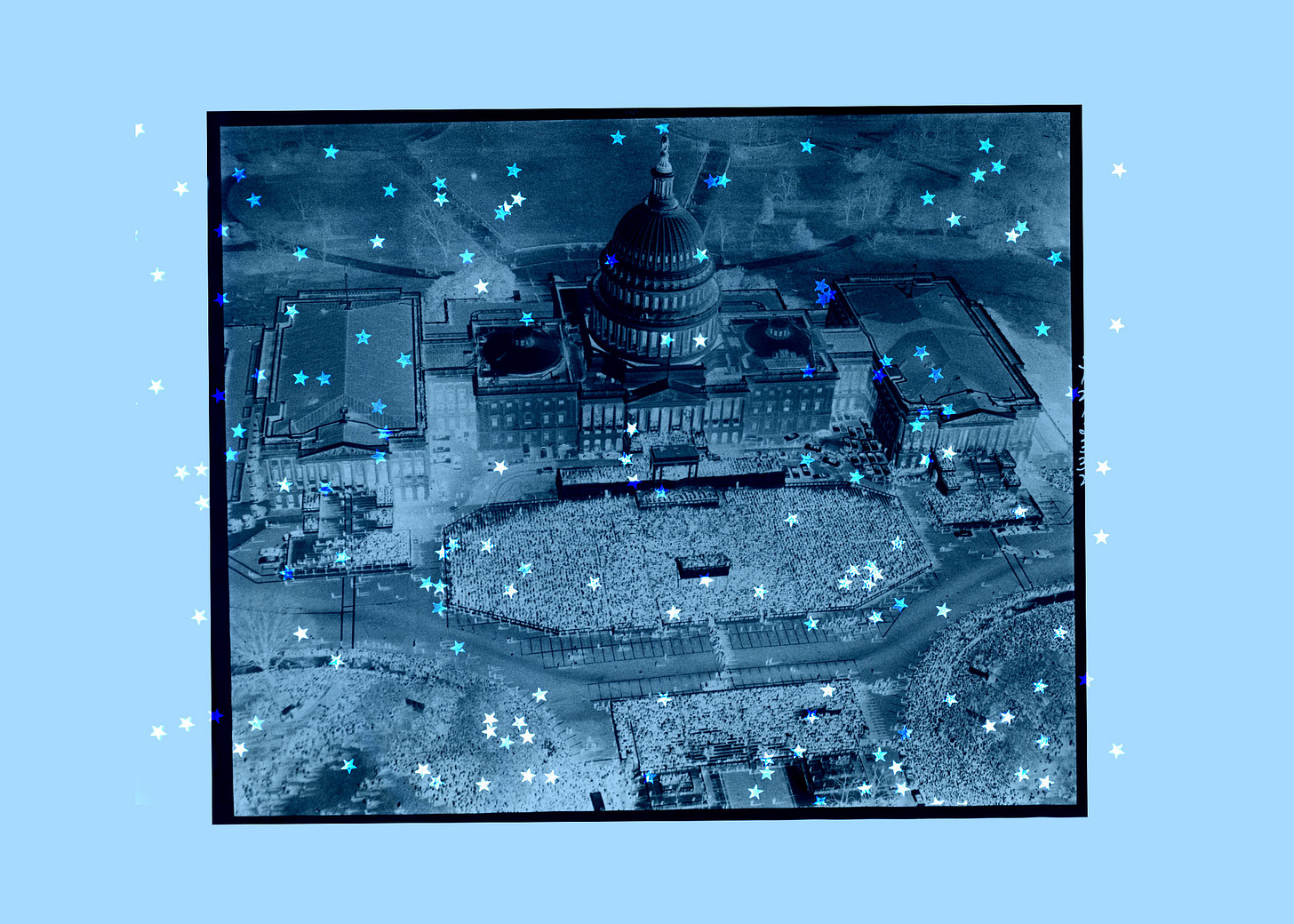Confessions of an Institutionalist
The only answer is moderation. And even that's a risk, too.
Programming alert: This is going to be an unusual JVL week. No Triad on Tuesday or Wednesday, but I’ll be livestreaming The Next Level with Sarah and Tim on Wednesday at 3 p.m. in the East on The Bulwark’s YouTube channel, here. (You can set a notification via YouTube through that link if you want to watch us live, otherwise, we’ll be posting the show Wednesday night in all the usual places.)
Then on Thursday night, we’ll be live from New York. (You can still get tickets, I think.) And because of the live show, there won’t be a Sarah/JVL Secret pod on Friday.
1. The People > Autocrats
I had a long, meandering conversation with Will Saletan last week and in the course of it we hit on what is probably the central theme of my writing over the last seven years.
I believe that the people are the problem. We’ve talked about this a lot: Politicians can only be as good as the voters let them be and in the end they will be as bad as the voters demand. Donald Trump is not a cause, he is a symptom. Etc.
But at the same time: What’s the alternative? It’s not monarchy, or autocracy, or oligarchy. Even if you take it as given that the end goal of government is liberalism, and the mode of government that achieves liberalism is value-neutral, democracy is still the best bet by a mile.
Yet the Achilles’ heel of democracy is that if you let The People choose over and over and over, then eventually they will choose either illiberalism, or autocracy, or both. And while democracy has to win every time, the illiberal autocrats only have to win two in a row.
None of this is new. The problem is as old as Plato and is what America’s Founding Fathers wrestled with in designing our Constitution. The question is: How do you give The People the final word, but try to discourage them from making bad choices?
And the answer to that is institutions.
2. Institutions > People
Institutions, in the broadest sense, are devices that sit between the demos and its expression of power. Our three branches of government are institutions. Our political parties are institutions. Churches, community groups, the media, businesses, universities—they’re all institutions of one sort or another.
If you imagine the will of the people as a hand and power as a lever, institutions are



